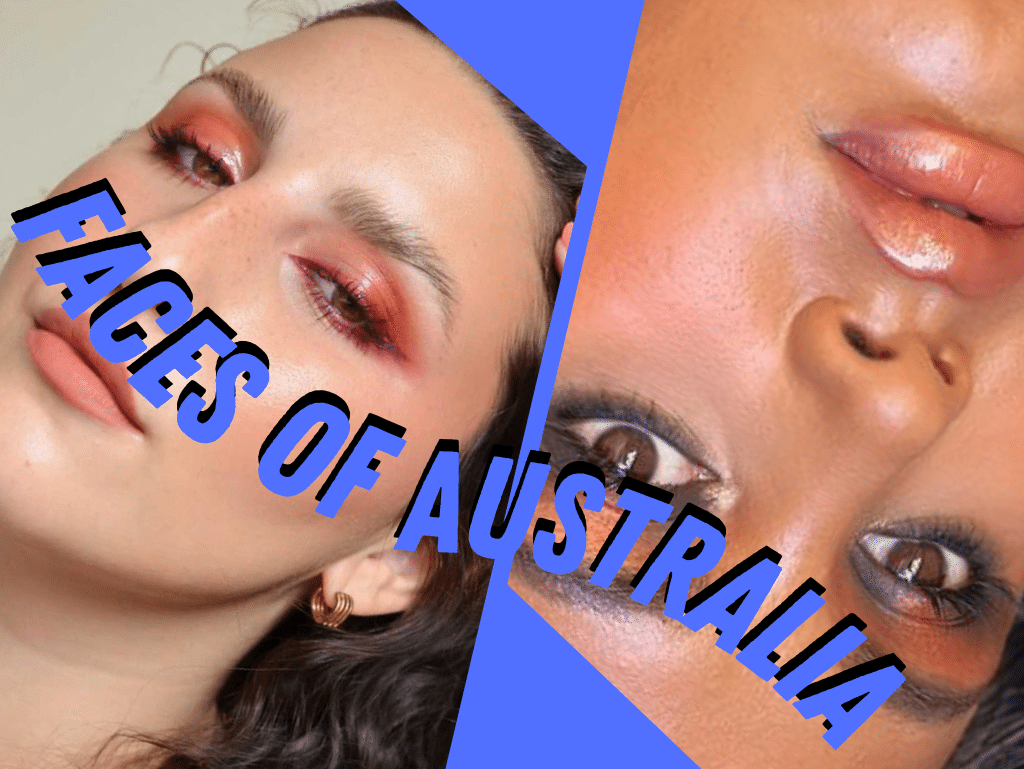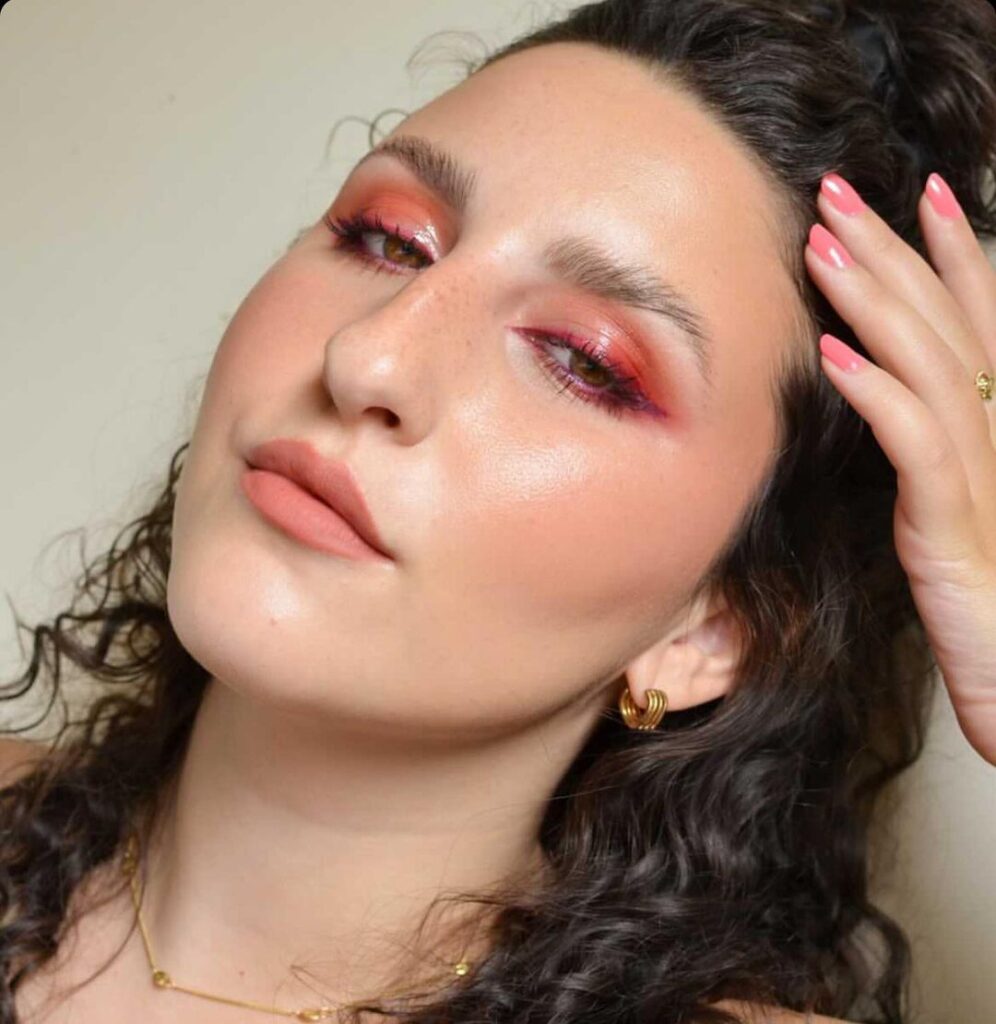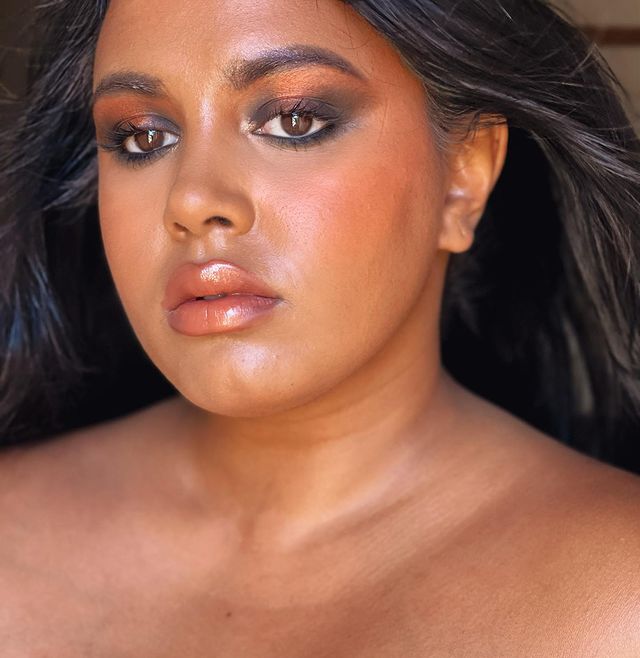
Faces of Australia is a column highlighting BIPOC creatives to bring you their stories. Creators are asked to collaborate on a makeup look that empowers, holds meaning, or describes their experience as it relates to Australian beauty standards and the Australian beauty industry. Faces of Australia is written and produced by Ruchi Page, with a mission to show the beauty industry how accessible BIPOC talent is across this diverse nation.
Episode 8: Clary Riven
The brief? Fierce and fighting to fit in.
I welcome Clary Riven to this week’s episode. A theatre director, makeup artist, and beauty content creator, Clary has established herself in the creative space and says she’s not afraid to put her fingers in all the pies at once. I sat down and chatted with the multifaceted Clary to get a glimpse into her story and life growing up after immigration.
Clary was born in Caracas, Venezuela. In 2007 when she was 13-years-old, her family made the decision to move to Australia in order to escape a dictatorship. The creator remembers the move to Melbourne being a “semi-blind pick” and has now established her career within the city. Carving out a niche for herself as an authority in skincare and prep, Clary’s content has gained traction from global brands such as CIATE London and Foreo, but this type of acceptance from the beauty industry was lacking for most of her life.
Through previous conversations, Clary had mentioned traumatic, racist experiences she experienced first-hand. I asked if she felt comfortable sharing some of these moments to which she agreed. From culture shock upon moving to Australia to not understanding or speaking English, Clary recalled her first moments in the land Down Under as a “deep-rooted desire to fit in and survive because it’s either sink or swim”.

So when did the trauma begin? Clary notes she first started to feel isolated around high school. The introduction to our teens is already such a complicated time. Pair that with starting a new school in a new country whilst not speaking the language, and we have a recipe for some seriously daunting experiences. Clary confirms that greetings were met with confusion and questions like, “Where are you from?”. These interactions quickly turned into jokes and stereotypes, and this began a journey that would significantly impact Clary’s life up until adulthood. The generalisations and racial microaggressions worsened, Clary tells me. “I was questioned whether the sandwich I was eating at lunch had cocaine in it. From 13 years of age I’ve been constantly fetishised and sexualised thanks to the porn industry,” she says. Clary recalls being smacked on her backside many times without consent, followed by racially-fueled sexual comments. Clary’s sexualised experiences based on her ethnicity are a significant example of the media’s exploitation of Latinx women who have curvy bodies.
The trauma progressed as Clary continued to be ridiculed as well as generalised as Mexican by her peers. “Apparently it’s hilarious to group the entirety of the middle and South America into one country,” she explains. Enough was enough and after years of racism and mistreatment, the creator became eager to learn English and rid her accent. This deeply saddened me. For Clary to fit into Australian culture, she essentially had to erase such a beautiful part of her identity. “It made me embarrassed to be who I am, and it took me a really long time to finally come to terms with the fact that I, as a result, had been racist towards myself. I needed to set myself free of that and become proud of where I came from.” Eventually, Clary began to develop a sense of pride within her cultural identity. But this realisation didn’t come without its obstacles.

Clary’s hunger for acceptance was satisfied when the BIPOC term broadened. Finally, a community of people who share similar experiences could help shape the beauty blogger’s desire to feel a sense of belonging. “For a long time, a person of colour was determined based on skin colour. Now we know that it is not necessarily the case, and it extends beyond,” Clary notes. For years, she felt like others dictated her connection with the term ‘POC’. “I had a turbulent relationship with the word, as I was always told I was not a POC. When the term became broader, I wasn’t sure whether it was my platform. So for a while, it felt wrong saying that I was a member of the BIPOC community.” With all of the noise surrounding exclusion in the beauty industry, I wanted to know if Clary felt represented within the Australian beauty industry. She mentioned not really seeing Latinx culture and not even knowing where to search. That being said, Clary says she is happy and inspired by other members of the BIPOC community that have a seat at the table and she’s been able to connect with other Latin creators over the past year.
Our brief was ‘fierce and fighting to fit in,’ and Clary is an accurate representation of that. From being forced to develop a thick skin to reclaiming pride in her ethnicity and language, she is undeniably fierce. Respect, happiness, and honour now describe how Clary feels when it comes her roots. She exclaims that she is proud of where she comes from. Whilst fitting in was something both the artist and myself could relate to— and at a high cost— we both feel part of a community, and celebrate what makes us, us. To conclude our episode, I asked Clary what advice she would give her younger self…
“I’d tell her to be her truest and most authentic self no matter what people may say. Stop putting other people’s happiness before yours, you cannot pour from an empty cup. Being and looking different makes you more special than you probably realise.”
– Clary Riven, makeup artist and content creator
PRODUCTS USED







